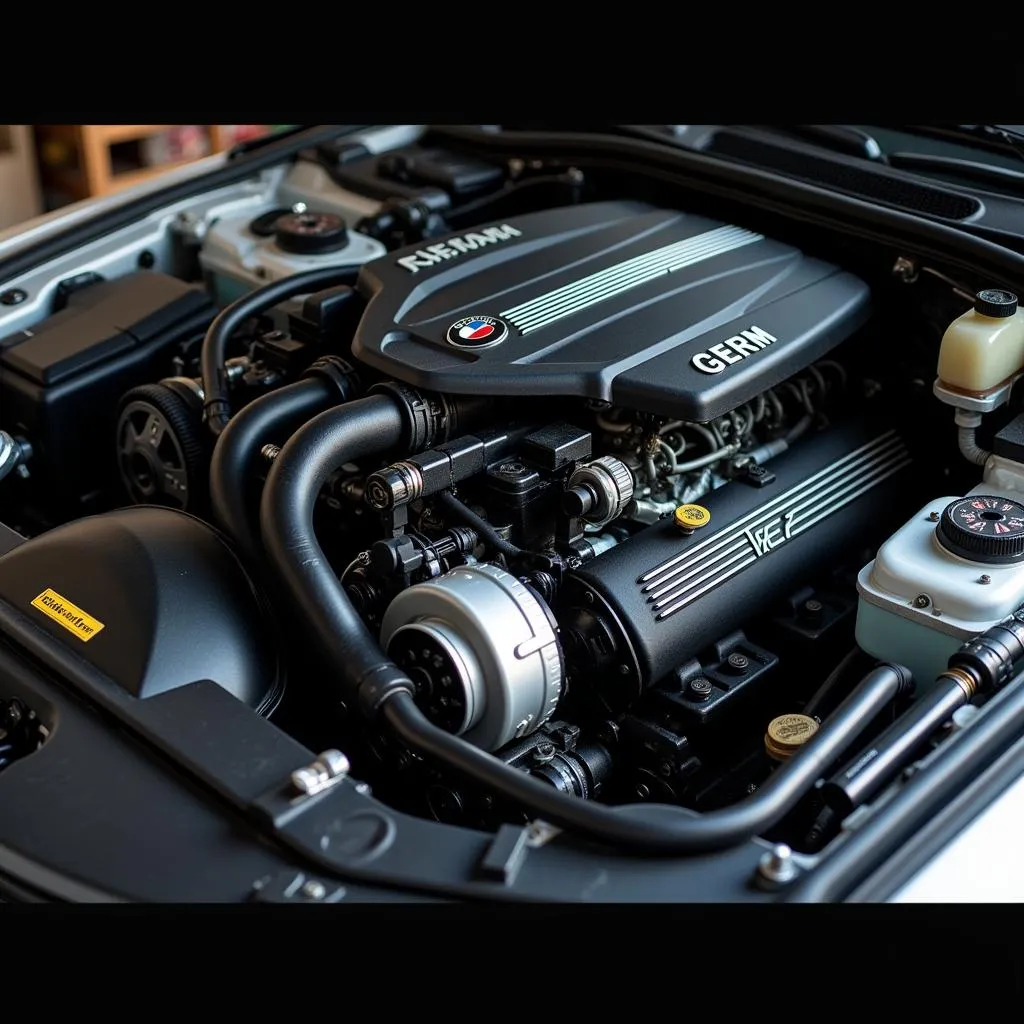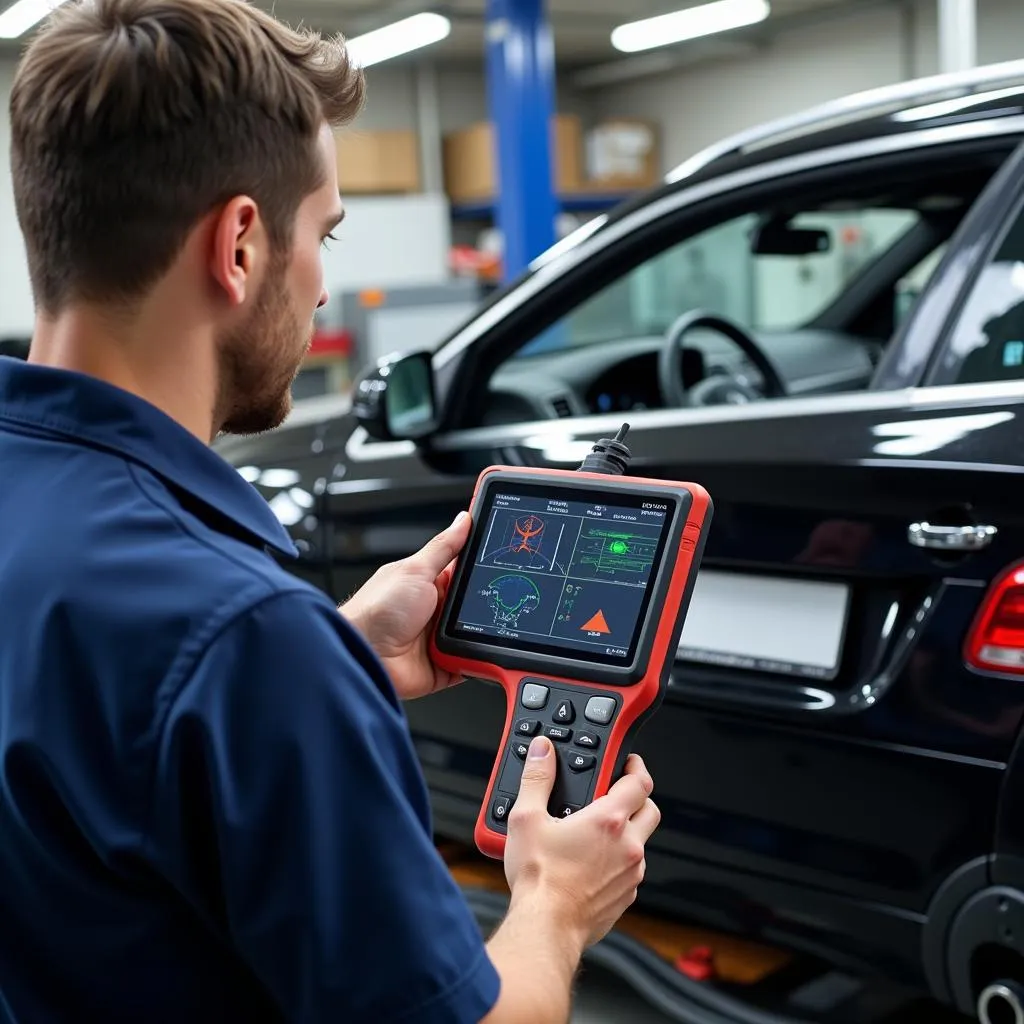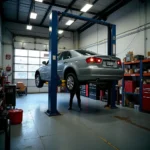Why Choose Specialized German Auto Parts & Services?
German engineering is renowned for its precision and complexity. From the powerful engines to the intricate electronic systems, these vehicles demand parts and expertise that match their high standards. Here’s why choosing specialized services is crucial:
- Precise Fit and Compatibility: German automakers often use unique parts and designs. Generic parts may not offer the same level of fit, performance, or longevity, potentially harming your vehicle in the long run.
- Technical Expertise: Mechanics specializing in German cars possess in-depth knowledge of their specific engineering, allowing them to diagnose and address issues accurately.
- Specialized Tools and Equipment: German car repair often requires specialized tools and diagnostic equipment that general mechanics may not possess.
 German Car Engine
German Car Engine
Essential German Auto Parts: What You Need to Know
Understanding the key parts and their maintenance needs can save you time, money, and potential headaches down the road.
- Brakes: German cars, known for their performance, often demand high-quality brake pads and rotors for optimal stopping power and safety.
- Engine Components: From spark plugs to timing belts, using genuine or OEM-equivalent parts designed for your specific engine ensures optimal performance and longevity.
- Sensors and Electrical Systems: Modern German cars rely heavily on intricate sensors and electronic control units. Using the correct parts and diagnostic tools is critical for accurate repairs and to avoid costly replacements.
- Fluids and Filters: Regular oil changes with the right type of oil, along with timely replacement of air, fuel, and cabin filters, are essential for maintaining engine health and performance.
Finding Reliable German Auto Parts & Services
Locating a trustworthy source for parts and services is vital for your peace of mind. Here are some key steps:
- Research and Read Reviews: Online platforms and forums dedicated to your specific car model can offer valuable insights from fellow owners about reputable shops and suppliers.
- Seek Recommendations: Ask friends, family, or local car clubs for recommendations based on their experiences.
- Check for Certifications: Look for shops certified by German automotive organizations, indicating their adherence to high standards and training.
- Inquire about Warranties: Reputable shops often stand behind their work with warranties on both parts and labor, providing you with added assurance.
 Mechanic Using Diagnostic Tool on German Car
Mechanic Using Diagnostic Tool on German Car
Cost Considerations: Quality vs. Budget
While specialized German auto parts and services might come at a premium compared to generic options, it’s essential to consider the long-term value. Investing in quality parts and skilled labor can lead to:
- Enhanced Performance and Reliability: Genuine or OEM-equivalent parts are designed to function seamlessly with your vehicle’s systems, ensuring optimal performance and reducing the risk of breakdowns.
- Increased Lifespan of Your Vehicle: Proper maintenance with quality parts and expert care can significantly extend the lifespan of your German car, saving you money on potential future repairs or replacements.
- Safety and Peace of Mind: Knowing your vehicle is in top shape provides you with peace of mind and ensures your safety on the road.
Conclusion: Investing in the Long-Term Health of Your German Car
Taking care of your German vehicle requires a proactive approach and a commitment to using quality parts and services. By understanding the importance of specialized care and investing in the right resources, you can ensure your German car continues to deliver exceptional performance and driving pleasure for years to come. Remember, when it comes to maintaining these sophisticated machines, cutting corners can lead to bigger problems down the road. Choose quality, choose expertise, and enjoy the ride!
FAQ about German Auto Parts & Services
1. Are genuine German auto parts always necessary?
While genuine parts are ideal, high-quality OEM-equivalent parts from reputable manufacturers can offer a good balance between quality and cost-effectiveness.
2. How often should I service my German car?
Refer to your owner’s manual for specific service intervals. Generally, an oil change every 5,000-7,500 miles and a major service annually or every 15,000 miles is recommended.
3. What are common signs of a failing German car part?
Unusual noises, warning lights on the dashboard, fluid leaks, and changes in vehicle performance can all indicate potential issues that require attention.
4. Can I perform basic maintenance on my German car myself?
Simple tasks like checking fluid levels, changing air filters, and replacing wiper blades can be done at home with basic tools and guidance from your owner’s manual.
5. How can I avoid being overcharged for German auto repairs?
Obtain multiple quotes from different shops, ask for detailed explanations of the repairs needed, and be wary of unnecessary upsells.
6. Are used German auto parts a good option?
Used parts can be a cost-effective solution for certain components, but be sure to purchase them from a reputable salvage yard and have them inspected before installation.
7. What are the benefits of choosing a specialist over a general mechanic for my German car?
Specialists possess in-depth knowledge of your vehicle’s specific make and model, ensuring accurate diagnostics and repairs. They also have access to specialized tools and training.
Need help finding the right “a german auto parts & services” for your specific needs? Check out our directory for trusted providers in your area:
- a german auto parts & services san jose ca
- a-german auto parts & services san jose ca 95125
- a-german auto parts & service 301 san jose ave
- am auto sales and service ca
For personalized recommendations and assistance, contact our team via WhatsApp: +1(641)206-8880 or Email: [email protected]. Our dedicated support team is available 24/7 to answer your questions and help you find the best solutions for your German auto needs.


